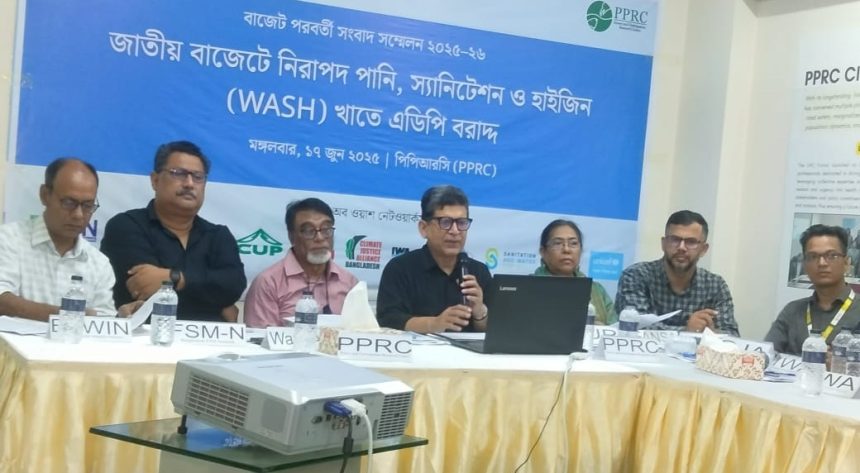Economist Hossain Zillur Rahman has expressed concern over the absence of a dedicated allocation for Covid-19 preparedness in the proposed national budget, urging the interim government to reconsider before final approval.
The former caretaker government adviser also warned of the implications of reduced funding for water, sanitation, and hygiene (WASH) in the Annual Development Programme (ADP) for FY2025–26.
Speaking at a post-budget policy briefing. jointly organised by Power and Participation Research Centre (PPRC) and WaterAid Bangladesh, on Tuesday in Dhaka’s Dhanmondi area, Zillur said, “The proposed budget does not earmark any funds for Covid-19 response, which were present in the previous fiscal year”.
“As new infections have started to resurface, I hope the government will reconsider this omission before finalising the budget,” he urged.
The event also saw the release of the latest WASH budget tracking analysis by the event’s organisers. It highlighted a 39 per cent reduction in the WASA allocation in the ADP.
Although allocations have increased for remote areas such as the Haor, coastal, and hilly regions, most of the funding has been directed toward Dhaka WASA, primarily for water purification projects — leaving marginalised populations with little benefit, Zillur noted.
Despite resource limitations, analysts noted that if the allocated funds are strategically disbursed, the reduced budget could still contribute to achieving sectoral goals. However, they also warned that emerging climate challenges threaten to further strain WASH infrastructure, particularly for marginalised groups.
The briefing underscored that gender and social inclusion remain overlooked in current budget allocations. Panellists called for an inclusive WASH budget that takes into account the specific needs of women, persons with disabilities, Dalits, tea workers, river gypsies, and fishing communities.
Other speakers at the briefing included Partha Hefaz Sheikh, director of Programmes and Policy at WaterAid Bangladesh; Muhammad Saiful Islam, coordinator of Bangladesh Water Integrity Network; and Faiyazuddin Ahmed, Policy and Advocacy lead at WaterAid Bangladesh.
They collectively stressed the importance of equity in budgeting and called for a reassessment of current funding strategies to ensure that WASH services reach the most underserved communities.


